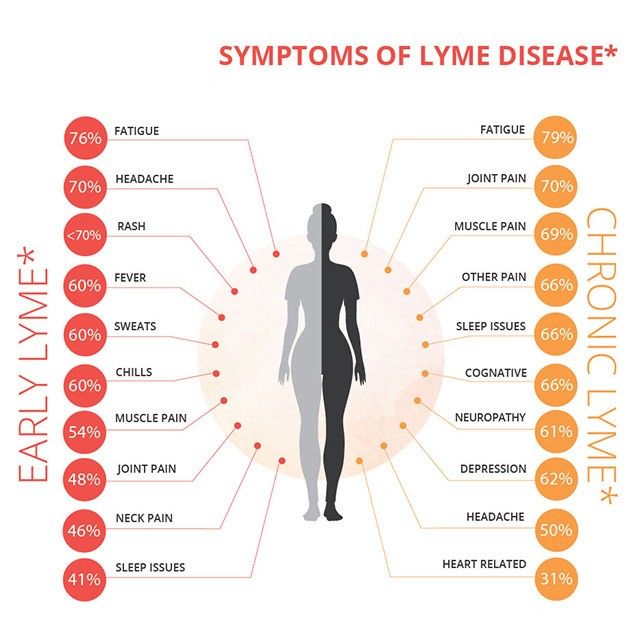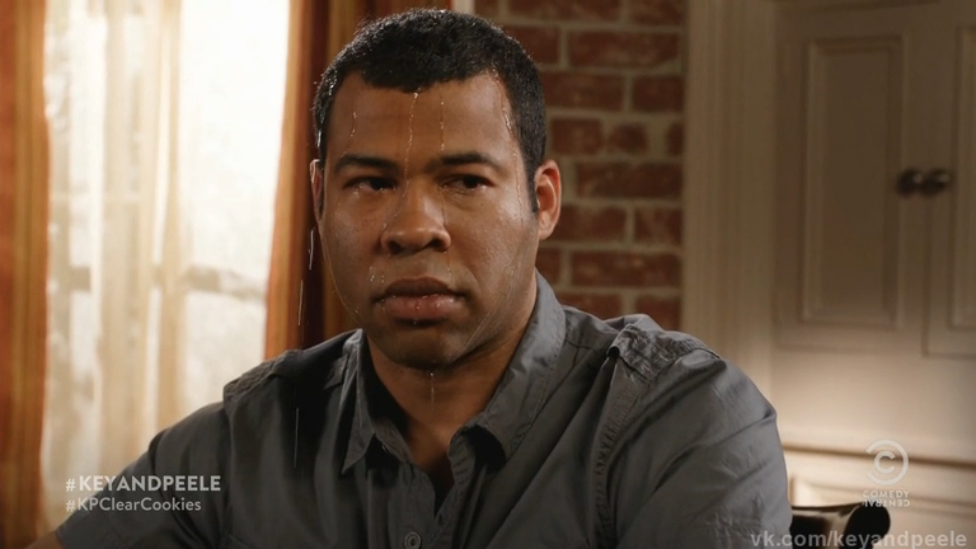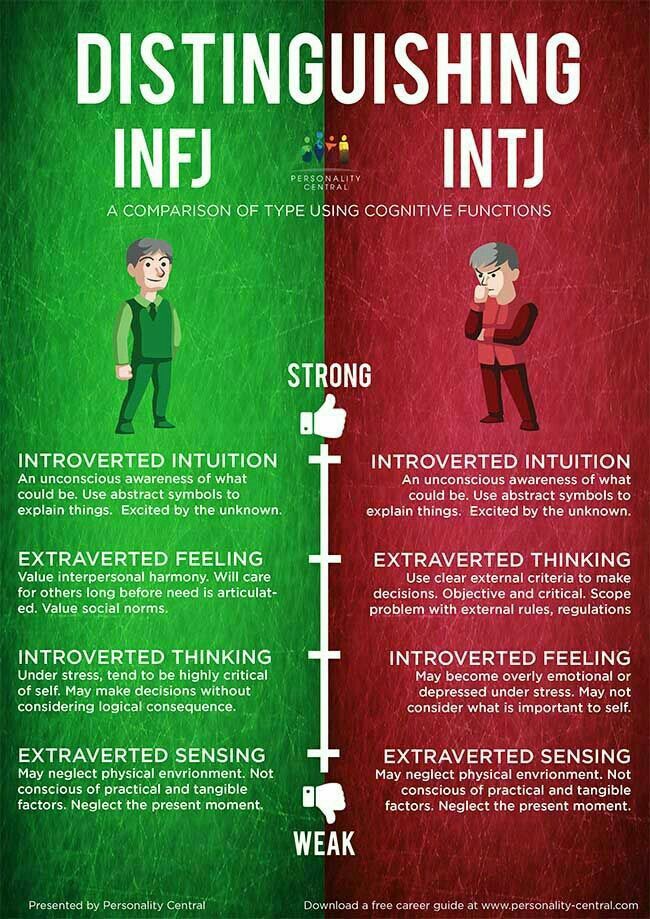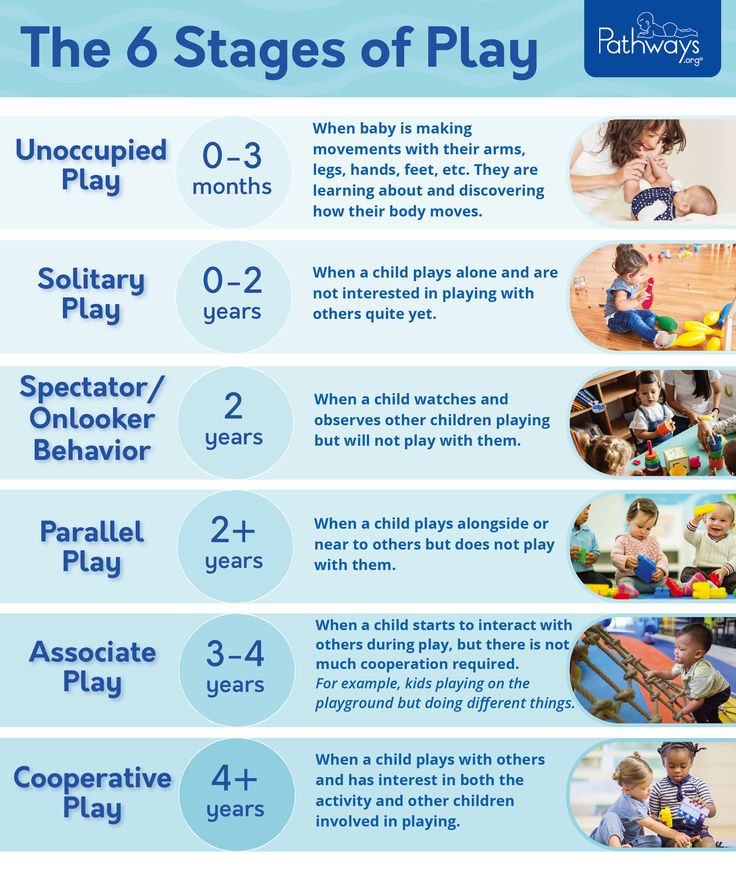Victim mentality in relationships
15 Signs Of Victimhood & How To Deal With It
A victim mentality is something that can be really tricky to write about. Before I get going on this subject and share some things about me and my life that I haven’t shared before, I want to first make one thing very clear:
This post is in no way, shape, or form victim-shaming or victim-blaming.
I think it’s crucial (as far as the healing process goes) to acknowledge that you are a victim if you have truly been victimized, minimized, muzzled, abused, and manipulated.
There is a difference between claiming the role of victim in a circumstance or event and actually using the fact that you were a victim to make it your identity and manipulate others.
I have all the empathy in the world for those (including my younger self) who have been the victim of emotional, physical, and/or psychological crimes – especially as defenseless and voiceless children.
I think we all have, at some point, been on the receiving end of abuse of some kind.
Personally, I could not heal until I was willing to step OUT of a victim mentality and INTO a space of survivorship.
Victimhood became my identity after years of not being able to process the trauma that I went through as a child.
A victim mentality was the only way I could subconsciously protect myself from the pain that my emotional body still did not know how to digest. This created a great deal of shame and set me up to be trauma bonded in my romantic relationships.
My goal in writing this post, with all the love in my heart, is to shed light on the pitfalls of a victim mentality; how to spot it in yourself, and how to deal with others who are convenient or perpetual victims.
You may love these people very much but be at your wit’s END as far as their ability to deflect and turn the tables so fast, you end up apologizing for things you didn’t do.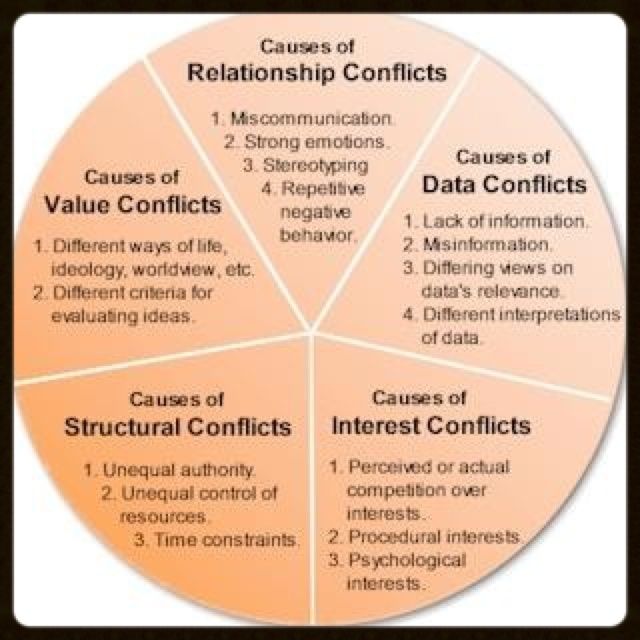
What Is Victim Mentality?
Victim Mentality is a term used in the psychological community that refers to someone who essentially seeks “evidence” at best (or creates their own “evidence” out of thin air, at worst), to automatically place themselves as the abused party. These people are always the wronged and persecuted ones. They are the victim of another person’s actions; life circumstances, and every situation under the sun.
People who have a victim mentality truly believe that they have no control over what happens in their own life. They think that the results they get in life have nothing to do with them and that everyone is out to get, hurt, betray, deceive, use, and abuse them.
Everything is because of everyone else.
It’s hard to trust someone with a victim mentality because these people lack trust within themselves. They are highly offended, easily triggered, and about as predictable as the sun rising and setting.
When I was deep into my own victimhood, the involuntary reflex was always blaming, finger-pointing, and orchestrating pity parties for myself.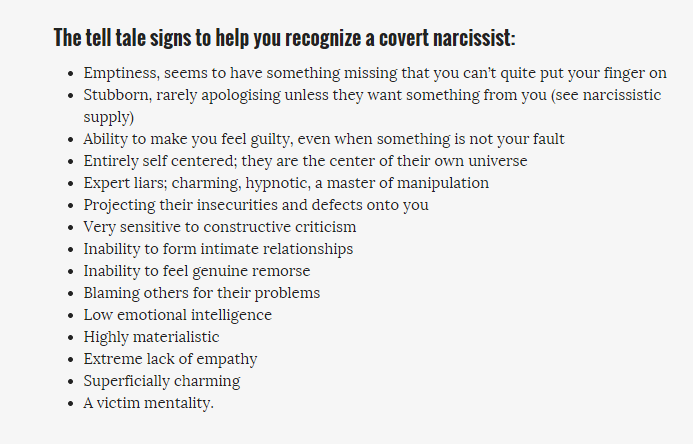 The pity parties could happen through listening to depressing music, engaging in habits that contributed to my emotional and physical death, engaging in really impulsive behavior, putting myself in danger, doing things that went against my moral code, and of course, oversharing.
The pity parties could happen through listening to depressing music, engaging in habits that contributed to my emotional and physical death, engaging in really impulsive behavior, putting myself in danger, doing things that went against my moral code, and of course, oversharing.
No matter what – how I felt on the inside, coupled with how my life was going (good or bad) was ALWAYS
because of someone or something else.Nothing was dependent on the
internal, always the external.It was impossible to have a genuine, meaningful connection with me because I didn’t have the ability to introspect. And when you can’t self-reflect, how can you ever be the problem, let alone at fault in any way? It’s always everyone and everything else.
How Does This Happen?
What Jumpstarts Victimhood?In my non-professional opinion and experiences, a victim mentality stems from trauma that’s so painful (and happens prior to the individual having learned how to self-reflect), the only available emotional coping mechanism is adopting a victim mentality (which soon becomes an identity).
Most people who have a victim mentality were victims as voiceless and defenseless children. Or, they grew up in an enmeshed family where codependency was at an all-time high.
One of my parents, who, although had the best of intentions, was always a victim. I observed how much attention this person got and as a result, modeled the behavior.
This leads us to…
What Can You Actually
Gain From a Victim Mentality?Looking back, it’s easy for me to see why I was so comfortable in my own self-victimization.
*
The bullet points below are not blanket statements that apply to everyone. I am merely sharing MY OWN experiences here and am in NO WAY shaming victims. This is my own experience.- When I was always the victim, I never had to take responsibility for anything! All I had to do was point out where responsibility should be taken.
- I would use my relationships to revisit the scene of an emotional crime in my past. I would then, be a convenient victim when it served me and a manipulative puppet master when it did not.
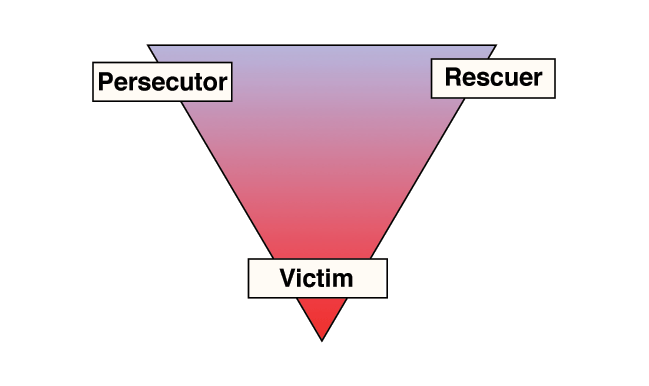 (Either way, I was self-absorbed and manipulative).
(Either way, I was self-absorbed and manipulative). - It was an easy way to get empathic people to be at my service.
- People were less hard on me because they knew how much I’d already been through. They knew my whole sob story and did not want to add to any more pain than I was already experiencing.
- People would eggshell walk around me and it made my inferiority complex temporarily go away. I felt powerful.
- I had people that would check on me.
- It was a very easy way to get others to view me as courageous, classy, dignified, and brave (I was none of those things).
- There was constant drama and chaos (that I created), which kept my lackluster life exciting.
- I got apologized to. A lot. And it was very affirming. It justified my self-righteousness and propelled my narcissism.
- Because I attracted “helpers,” I always needed to be listened to and “saved.” People did things for me that they wouldn’t do for others.
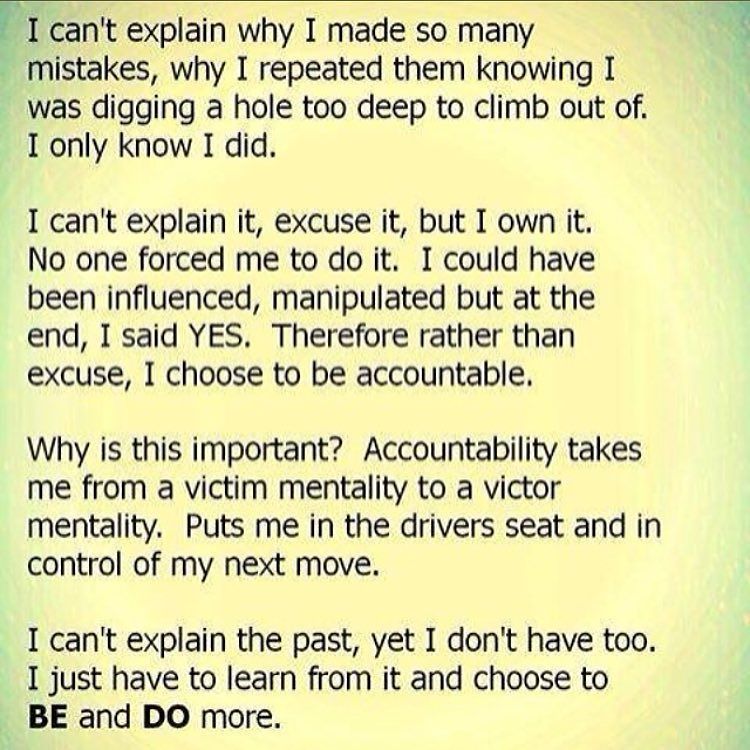 And that felt fantastic because I never got any of it in my childhood.
And that felt fantastic because I never got any of it in my childhood.
I could go on but you get the point here. That was very embarrassing to type out but it’s my truth. And if it helps one person feel less alone; gives them the courage to self-reflect or to end a relationship with someone who has a victim mentality, that’s all I care about.
What Do You Stand to Lose With a Victim Mentality?
- Your reputation.
- Your mind.
- Yourself.
- The ability to implement healthy boundaries.
- The ability to develop self-love and self-respect.
- The ability to create meaning and connection, which are the foundational forces of intimacy.
- The chance to become attracted to true love and leave the rollercoaster of romantic, hot/cold, yes/no, Jekyll/Hyde love behind.
- The opportunity to realize your potential and live life on your own terms.
- Respect from others.
- The strength you never knew you had.
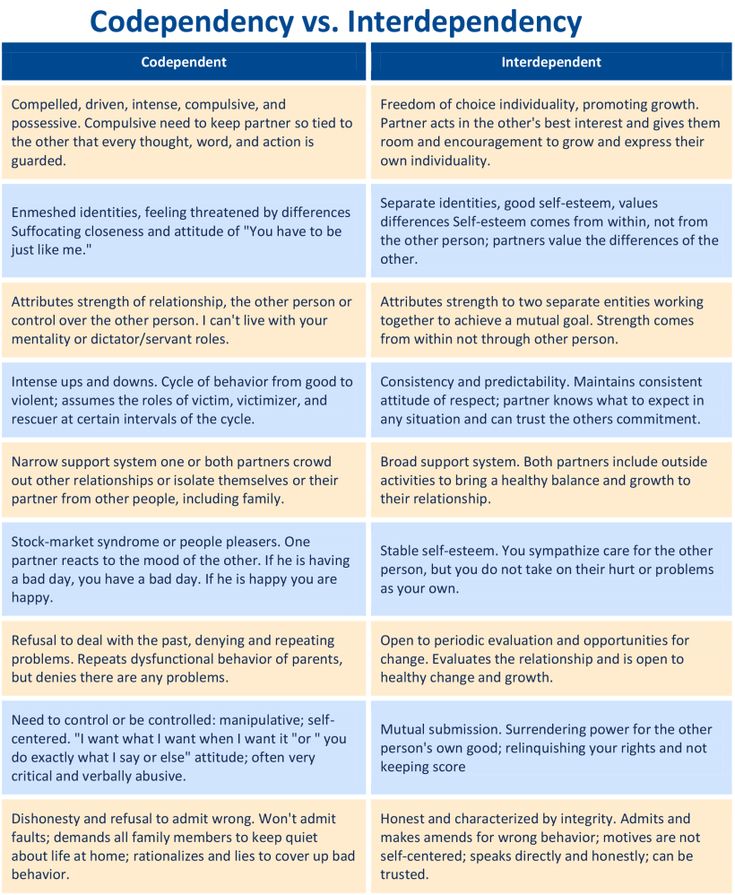
- Decision-making that isn’t executed through the filter of your shame.
- The ability to be the hero and savior in your own life story. (You’re always wanting to be saved and rescued).
- The ability to unconditionally love yourself, instead of endlessly searching for external unconditional love (that wasn’t given to you as a child).
15 Signs of a Victim Mentality
- The trauma and injustices you’ve experienced did not “just happen to you.” It has literally become who you are.
- You’re a perfectionist. And because on some level, you know that you’ll never achieve perfection, you are your own worst enemy and harshest critic. There’s always some reason to doubt, sabotage, and berate yourself.
- You feel like the only way your life will change is if other people and circumstances change.
- You feel totally out of control and powerless when it comes to your relationships, circumstances, and life.

- There is a ZERO toleration policy for receiving criticism of ANY kind. You also can’t deal with rejection.
- You are highly triggered. The most constructive criticism could have you in tears and completely unglued.
- You think that everyone is happier, more attractive, and has “it” all “figured out” more than you do/ever will.
- It’s hard to see the good in the world. You feel as though the world is a threatening, deceptive, unfair (only to YOU), and hurtful place.
- Your worth is based on the level to which you can get others to empathize with, serve, and feel sorry for you.
- You love telling “your story.”
- Health issues are exaggerated.
- You compulsively (or pathologically) lie.
- Blaming others for how you feel has become habitual.
- When you don’t get the sympathy and handouts you want from others, you vilify them and become a victim to their opinion (which they are totally entitled to!).
- It’s hard for you to ever be wrong.
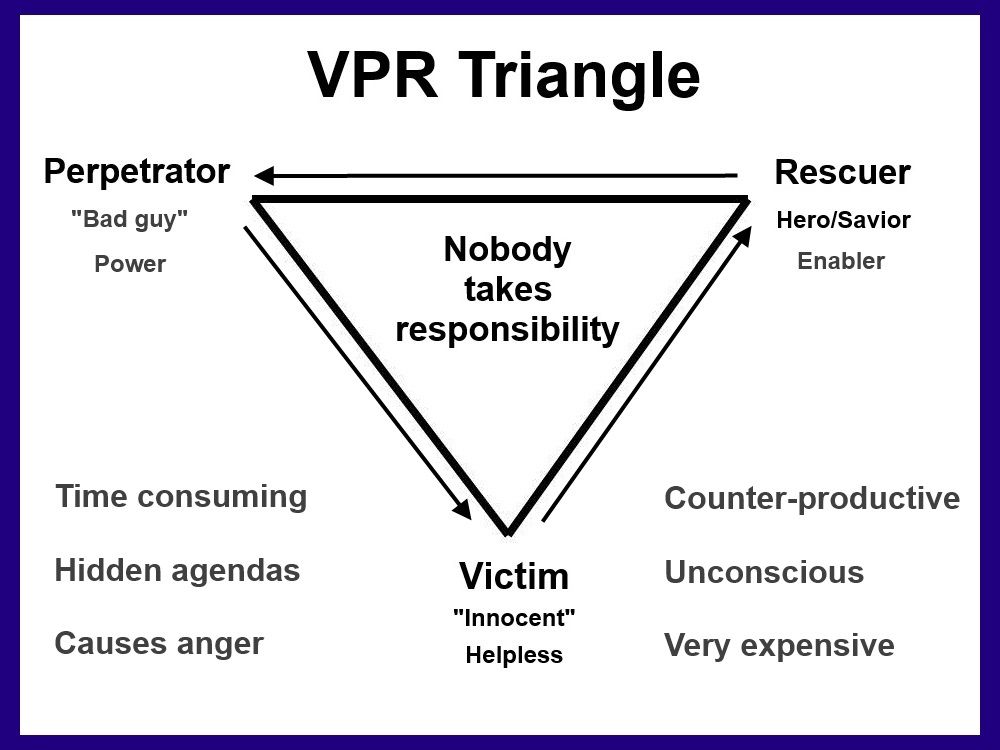
- Your outcomes in life are always based on what was DONE – never on what you DO as a result of what was done to you.
How to Overcome a Victim Mentality
- First, admit that this has become your identity and be KIND to yourself. Self-sabotage, self-hate, and punishments will get you nowhere. Don’t judge yourself for having a victim mentality. Just compassionately observe and take an inventory of your life and this pattern.
- Every time you want to point a finger at someone, turn inward. Ask yourself where you could have contributed to your own pain and the problem as a whole.
- Get rid of the “YES!” people in your life; the enablers.
- Understand that life is unfair. You had no control over what happened to you as a child, but as an adult, you have full control over how you REACT to being triggered. You have full control over what you choose to tolerate (in yourself and with others) going forward.
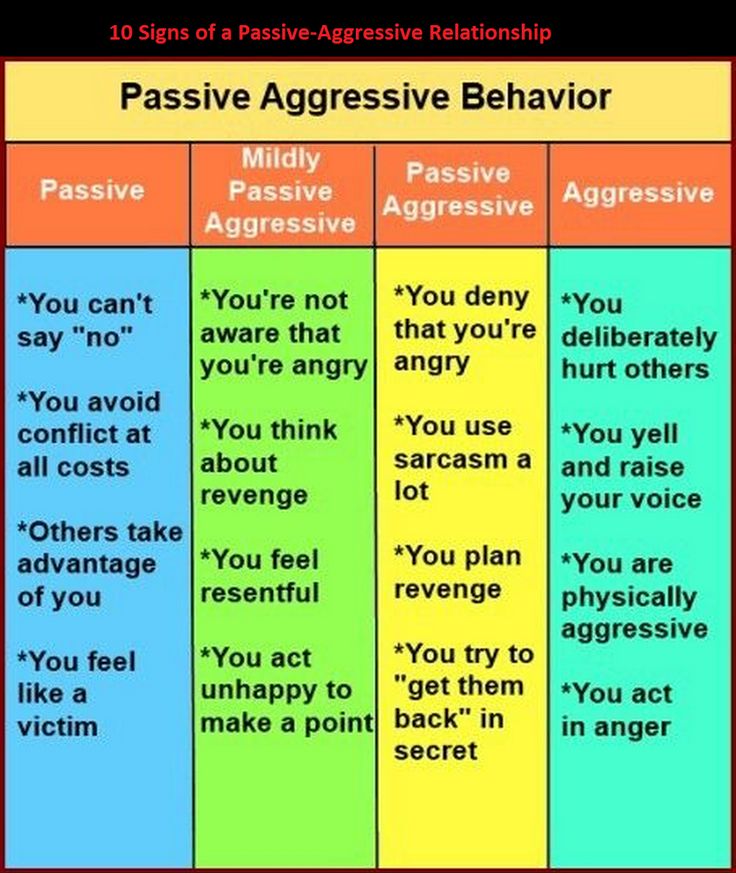
- Pivot when you find yourself complaining and remind yourself that you are in charge.
- Stop validation-seeking.
- Learn to say “no.”
- Learn to communicate that you are hurt from an EMPOWERED and strong place instead of a DISEMPOWERED and weak one.
- Realize that internalizing the behavior of others is like stealing from someone else. It’s not right and you’re not entitled to disallow others from owning their own behavior.
- View yourself as someone who has SURVIVED because even if you’re barely hanging on, you’re here and you have.
How to Deal With a Victim Mentality in Others
The best thing you can do when dealing with someone who has a victim mentality is to make sure that your boundaries stay non-negotiable and intact.
Know that these types will either suck the energy out of you with their emotional vampirism (sob stories) or, they will try to blame you (either directly or passively) for the sh*tty relationship that they have with themselves.
The only reason you would stay close with someone like this is if you lacked boundaries. Boundaries are nothing more than a recognition of value. Standards are the criteria that need to be met in order for that value to be accessed. If there is an absence of boundaries, there is an absence of self-love.
Love yourself enough to have limits.
Love yourself enough to appreciate the survivorship and empathize with others, but draw a hard line at it diminishing your mental health.
Protect your peace at all costs and know that there is life beyond what happened to you. And there is life beyond that of non-reciprocal, non-mutual relationships.
x Natasha
+ If you need further and more personalized help with your relationship, please look into working with me here.
Victim Mentality In Relationships (25 Signs He’s Playing The Victim)
If you want to know what being in a toxic relationship feels like, try dating someone who loves to play the victim. They are a unique set of people who feel trapped in an unhealthy mentality, and this leads to distress and significant pain. People with such mindsets come with a level of emotional chaos that is difficult to point out.
They are a unique set of people who feel trapped in an unhealthy mentality, and this leads to distress and significant pain. People with such mindsets come with a level of emotional chaos that is difficult to point out.
It takes a degree of self-awareness to figure out what is happening and why you are the one who is to blame, who is always sorry, and who is grossly imperfect in the relationship. Relationships like this can be especially draining when you aren’t sure of what you are dealing with.
Here are some signs that should tell if you’re with someone who has a victim complex.
Contents
- 1 25 Tell-Tale Signs of Victim Mentality
- 1.1 1. He believes he is perfect
- 1.2 2. He compares a lot
- 1.3 3. Low self-esteem
- 1.4 4. They self-sabotage
- 1.5 5. They are not assertive
- 1.6 6. They do not have long term friends
- 1.7 7. You feel responsible for his happiness
- 1.8 8. They are not forgiving
- 1.9 9.
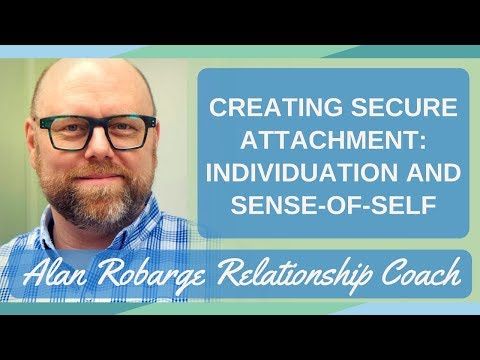 They dwell in self-pity
They dwell in self-pity - 1.10 10. Unwilling to seek solutions
- 1.11 11. They never run out of excuses
- 1.12 12. He can’t take a joke
- 1.13 13. Your relationship feels unstable
- 1.14 14. They are easily triggered
- 1.15 15. They are not on good terms with their exes
- 1.16 16. They believe they are specifically targeted
- 1.17 17. They hold onto negative thoughts
- 1.18 18. They have trust issues
- 1.19 19. They feel victimized
- 1.20 20. They avoid responsibilities
- 1.21 21. They allow other people to determine their lives
- 1.22 22. They are selfish
- 1.23 23. He feels powerless
- 1.24 24. He is resentful when you are happy
- 1.25 25. They are stuck in life
- 2 FAQs
- 2.1 How do you deal with a victim mentality in a relationship?
- 2.2 When people have a victim mentality?
- 2.3 Is a victim mentality a personality disorder?
- 2.4 What does it mean when someone always plays the victim?
- 2.
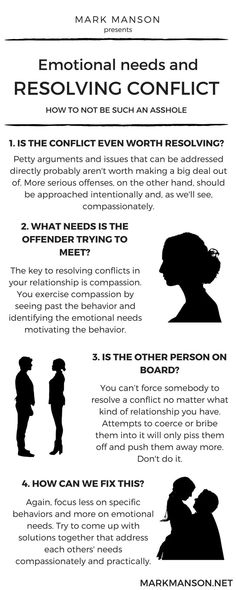 5 What is narcissistic victim syndrome?
5 What is narcissistic victim syndrome?
- 3 In Conclusion
25 Tell-Tale Signs of Victim Mentality
1. He believes he is perfect
People that spend so much time focusing on what other people are getting wrong than on themselves definitely have a complex. They believe they are blameless and everything happening to them is a result of another person’s actions.
2. He compares a lot
No one has it all, and in reality, we are all struggling with different issues. However, a partner that pushes blame a lot feels he’s the only one struggling. Such a person continually compares himself to others; he is reluctant to acknowledge his privileges and believes he has it worse than other people.
3. Low self-esteem
Often, people who see themselves as victims struggle with low self-esteem, and this only compounds their issue. Sometimes a person who believes others are the cause of his problems lacks self-love and sees himself through a negative lens.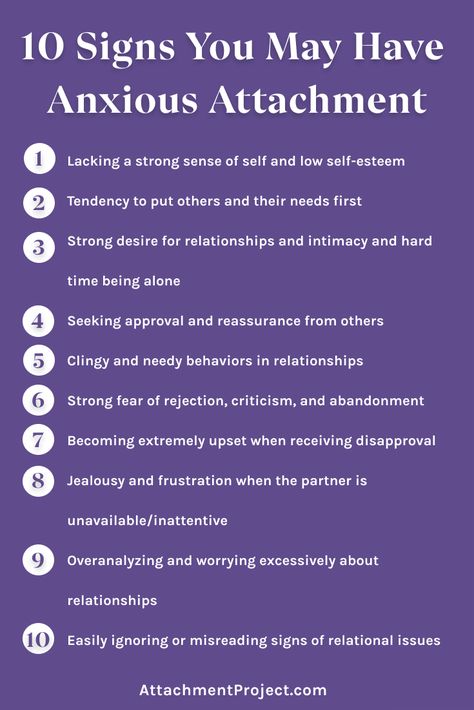
4. They self-sabotage
Knowingly or unknowingly, a person with a victim’s mentality engages in self-sabotage. They feed themselves negativity for so long that it takes roots in their minds. So, when faced with difficulty, they find it tough to bounce back. If you notice he is quick to undermine his abilities, then, he most likely has a victim mentality.
5. They are not assertive
People who think they are victims have difficulties setting boundaries in relationships; they have no sense of limits because they want to please everyone. This stems from their belief that perhaps, if everyone likes them, then they won’t be victimized and good things will happen to them.
6. They do not have long term friends
If you suspect your guy likes to play this card, try asking him about his friends; listen and take note of how many are long-term friends. You are likely to hear statements like; “I cut him off, he was toxic”.
If his reasons for doing so do not reference something abusive or dangerous, then you have your confirmation. you are indeed dealing with a guy who blames everyone but himself for his shortcomings.
you are indeed dealing with a guy who blames everyone but himself for his shortcomings.
7. You feel responsible for his happiness
Victims find it difficult to take responsibility for their happiness. They believe it is someone else’s job to make them happy, especially if that person is a loved one. Relationships like this can be draining because sooner or later, you unconsciously start to put their happiness ahead of yours regardless of the discomfort it gives you.
8. They are not forgiving
Victims love to ride on pain, so when you hurt them, they feel compelled to hold onto that painful memory. They cannot let go and forgive; instead, they are quick to remind you of such painful memories.
9. They dwell in self-pity
When it comes to throwing a pity party, no one does it better than a person who has a victim mentality. While this may appear immature to a lot of people, the person uses it as a coping mechanism for times when others are not willing to show empathy.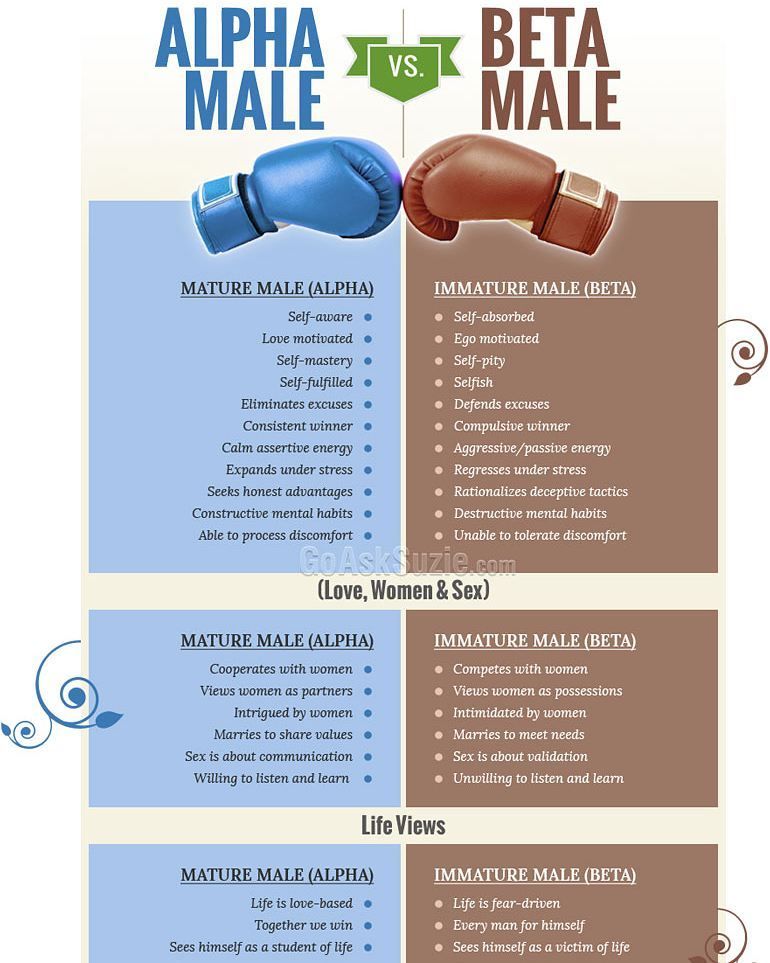
10. Unwilling to seek solutions
A partner who always sees himself as a victim is unwilling to show interest in problem-solving. They have the habit of allowing life to happen to them instead of taking charge of events. When bad things happen, the victim is more likely to crawl into his shell and give up rather than seek out alternatives and possible solutions.
11. They never run out of excuses
Does this person always come up with a flimsy excuse for their actions? It’s never their fault; it’s always something or someone else. A person with a victimhood mentality would rather come up with a million excuses to explain his actions than take responsibility.
12. He can’t take a joke
As with anyone who suffers from low self-confidence, people with a victim mentality are always self-conscious. That is why a simple joke about them could feel like a personal attack. They flare up at the slightest sense of a provocation for this reason.
13.
 Your relationship feels unstable
Your relationship feels unstableOne minute things are good, and the next minute, things are sour. Being in a relationship with someone who plays the victim often feels this way because even when things are going well, they still find it easy to dig and bring up old sad memories that can lead to fights.
14. They are easily triggered
A way to spot someone who has a victim mindset is by their inability to choose their battles. They treat every disagreement and dispute as an attack, failing to realize that they have a choice to choose what arguments to get involved in, and that’s why they always have their guards up.
15. They are not on good terms with their exes
It is normal for people to drift apart after a relationship ends. However, regardless of how such relationships end, some people always manage to remain friends with their exes. Does this guy badmouth all his exes? Does he keep talking about how they all didn't love him, deserve him or respect him? Then there’s a sign right there.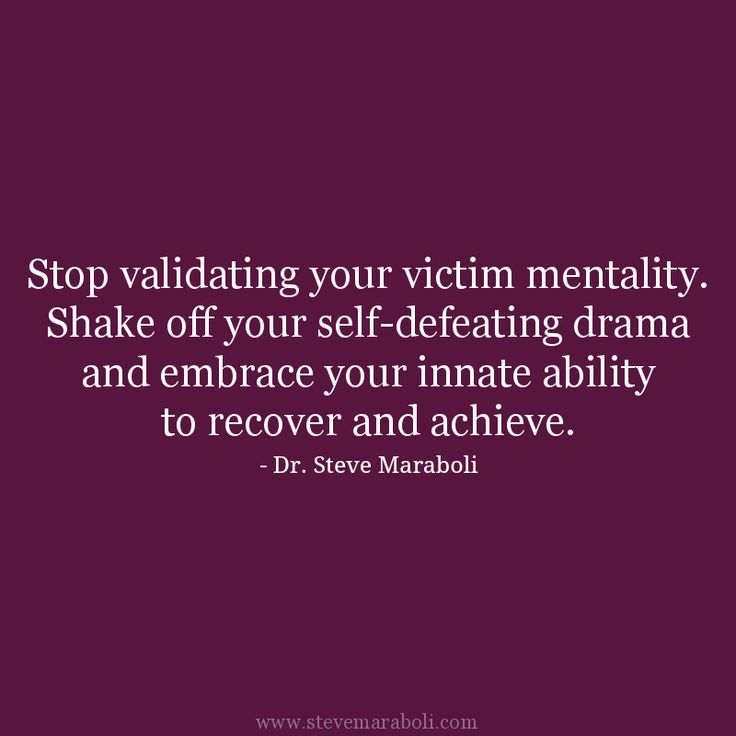
16. They believe they are specifically targeted
As the title implies, people who have this kind of mentality always believe others are out to get them. When bad things happen to him, he blames others and chooses to believe the worst about everyone even when that’s not the case.
17. They hold onto negative thoughts
As with painful memories, the victim holds on dearly to negative thoughts, and he allows it to influence his actions. They hold onto grudges like weapons, ready to point them at anyone who dares to challenge their actions.
18. They have trust issues
Does this person have past experiences where someone betrayed their trust? How did they handle it? People like this will let a bad case in the past rule how they trust people in the represent and future.
19. They feel victimized
Have you been with someone that always misinterpreted what people say or do to him? They make comments about what the person ‘actually meant,’ when that’s not even the case.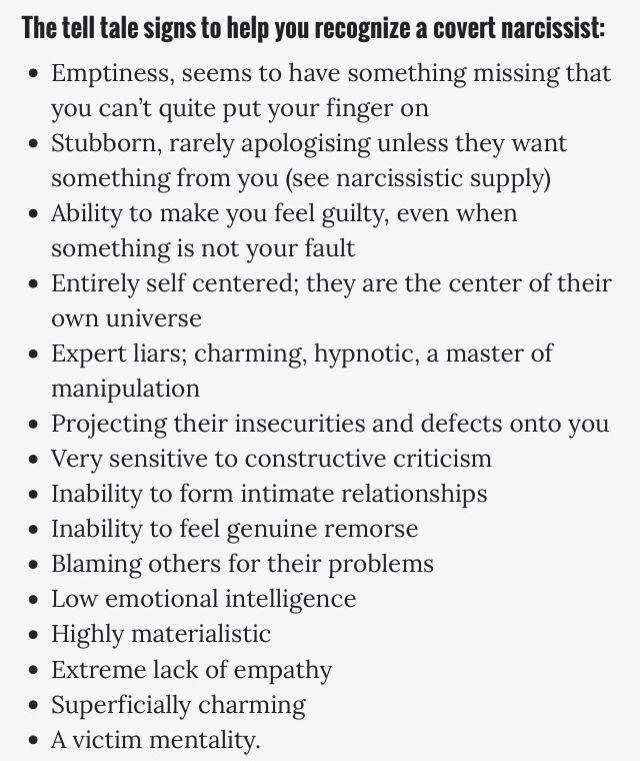
20. They avoid responsibilities
The victim will do anything to get out of taking responsibility for his actions. He is incapable of acknowledging his errors or how he may have contributed to his misfortune because he believes it is the fault of everything else but him.
Frustrated that he doesn't pay you as much attention as he used to?
This is one of the most common issues our female readers face.
It makes you wonder whether he actually likes you or not.
Take this free quiz to see if he actually likes you!
21. They allow other people to determine their lives
It almost feels like they do not have a mind of their own. They do not mind family members and friends butting into their business or relationships.
22. They are selfish
The primary reason why being in a relationship with someone who has a victim mentality is considered toxic is because they are selfish. They do not regard your opinion, yet expect you to respect theirs and empathize with them.
23. He feels powerless
If your boyfriend quickly throws in the towel when faced with difficulty, he may have this mentality. He feels whatever is happening to him is beyond his control; therefore, he must surrender to life.
24. He is resentful when you are happy
A person with a victim mentality expects the world to revolve around him. So if he notices you are happy away from him, he finds this upsetting and might even resent you for it. This is because your happiness makes him feel rejected and undesired.
25. They are stuck in life
A victim will not make progress in his life because they believe they are not responsible for what happens to them in life. Your guy probably hates where he is yet; he does not have a plan for where he wants to be. That is the classic act of victimhood.
FAQs
How do you deal with a victim mentality in a relationship?
A person with a victim mentality likes attention, so devote your time to listening and empathizing with them but do not always agree. You must point out your boyfriend’s patterns, so he understands his behaviors; however, choose your time and words wisely.
You must point out your boyfriend’s patterns, so he understands his behaviors; however, choose your time and words wisely.
When people have a victim mentality?
Most times, people do not know when they have a victim mentality, and this can make it difficult for their loved ones to help them. They cannot handle constructive criticisms and see every attempt to help them as an attack.
Is a victim mentality a personality disorder?
While some psychologists see victim mentality as a personality disorder, others do not because they believe it is an acquired personality. However, it is often associated with a narcissistic personality disorder.
What does it mean when someone always plays the victim?
A person with a victim mentality is someone who believes he is the victim of the harmful actions of other people. He does not take responsibility, so he would always come up with an excuse to explain why things happen to him.
What is narcissistic victim syndrome?
Narcissistic victim syndrome is a term that describes the effect of narcissistic abuse. Someone who has been in relationships with a narcissist can easily experience this syndrome as a result of domestic violence and emotional manipulation.
Someone who has been in relationships with a narcissist can easily experience this syndrome as a result of domestic violence and emotional manipulation.
In Conclusion
People who like playing a victim can become experts in manipulation and bullying which leaves you feeling drained and guilty. I hope this article helps you to identify the signs early enough before it starts affecting your overall well-being. If you enjoyed reading this, please leave a comment below, and don’t forget to share.
Do you hate it how everything seems to always revolve round him while you just seem to be an afterthought sometimes?
We hear this all the time from women that contact us asking for help with their relationship.
It almost makes you wonder whether he actually likes you or whether he's just stringing you along.
Why don't you take this quick free quiz to see if he actually likes you!
Psychologist's blog: how to get rid of the victim complex?
- Elena Savinova
- Psychologist
Author photo, AFP
PIDSIS to the photo,for people with the victimous complex "Win a shame, because it means to be noticeable"
"Belaya" Belaya "Belaya crow", "black sheep", "scapegoat" - people with a victim complex are unmistakably identified both among adults and in children's groups.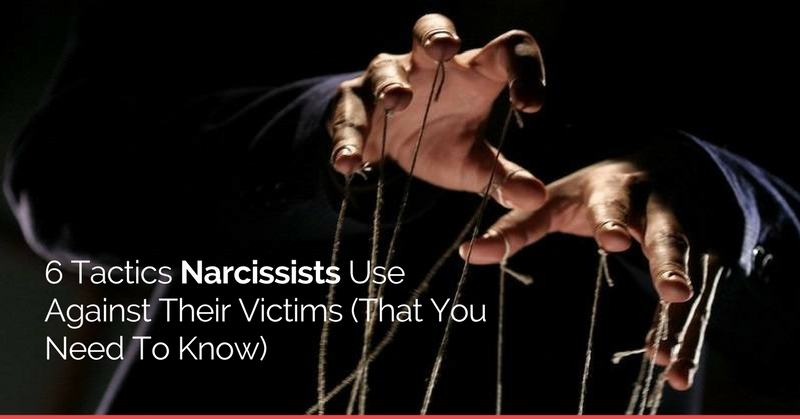 And although the physical characteristics of human victims are no different from the rest, in their behavior one can always guess the readiness to declare themselves a loser even before starting the game.
And although the physical characteristics of human victims are no different from the rest, in their behavior one can always guess the readiness to declare themselves a loser even before starting the game.
- Psychologist's blog: fashion for indifference
- Psychologist's blog: where to get motivation?
Because they a priori believe that anyone is right, but not them.
Doing something better than others, they are afraid to upset those who are worse in something.
Winning for them is a shame, because it means being noticeable and further maintaining the set bar.
People with a victim complex think that something good happened to them by chance. And now others will already expect certain actions from them.
And they won't be able to repeat the achievement. After all, their imposture will be exposed, branded, ridiculed.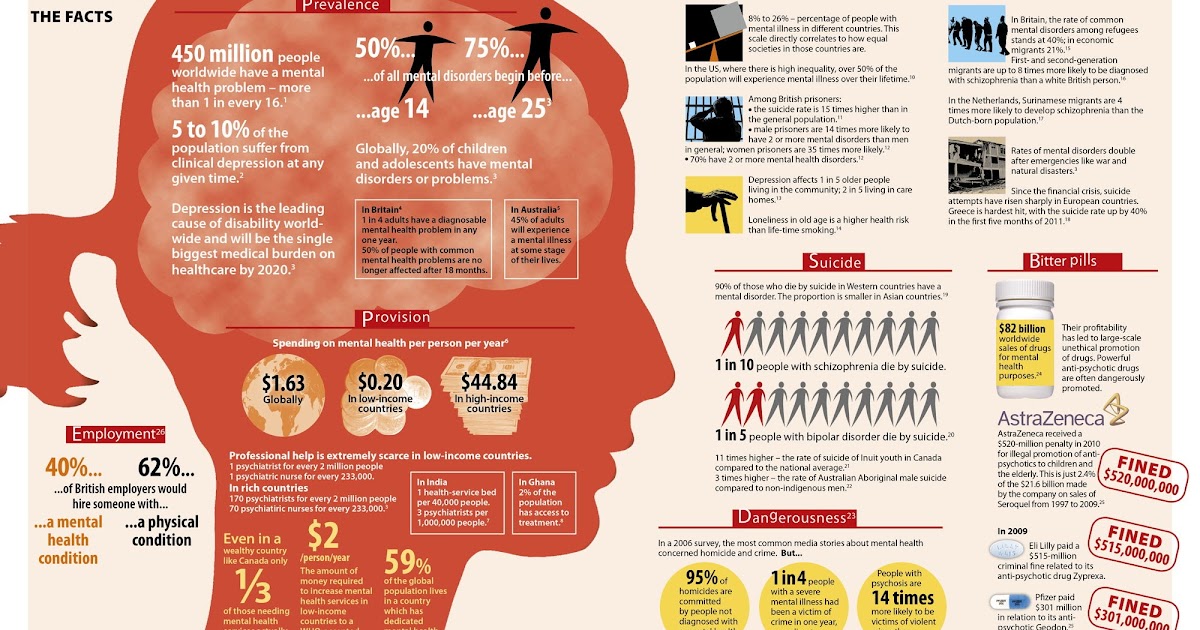
Therefore, it is better to sit quietly, to be in the background for colleagues who, of course, are stronger and smarter.
How to turn from a goat into a man
Here are some more typical beliefs of people who are ready to become potential victims.
They are uncomfortable in an equal relationship. They tend to give more than they receive. After all, deep down they are convinced that they are worthless.
By doing some nice things for someone, "victim" people prove in such a way that they are good and have something to be respected for.
Trying to change the opinion of others about themselves, to prove that they are worth something - this is the main occupation of those who are unsure of themselves. They are always preoccupied with how they will look in the eyes of others.
Why is that? But because their own opinion about themselves they consist of the opinions and assessments of others.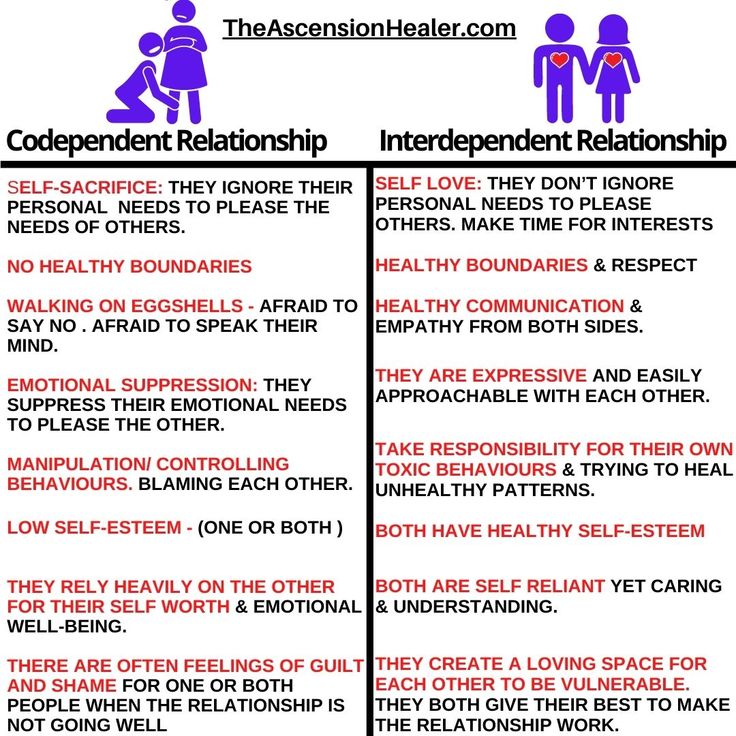
Tame me and you will be in charge for the rest of your life
In personal relationships, victims easily sacrifice their interests, and often their dignity, in favor of love.
They are sure that there is nothing to love them for, therefore, a good attitude must be earned all the time.
We all want to be loved. But for those who are without an inner core, this is simply vital.
Firstly, they can hardly be alone, and secondly, they are convinced that the one who loves them will not offend them, will not betray them, therefore they are safe with their beloved.
They don't care about the fact that there are plenty of examples of the opposite. The poor fellows are convinced that those who have been treated unworthily are themselves to blame. Because they worked little on relationships, they could not "keep" their loved ones, please them.
• Overcoming procrastination: new tricks
• Psychologist's blog: should you get into the soul and phone of a loved one?
They, in turn, work so hard on relationships that they completely forget about themselves.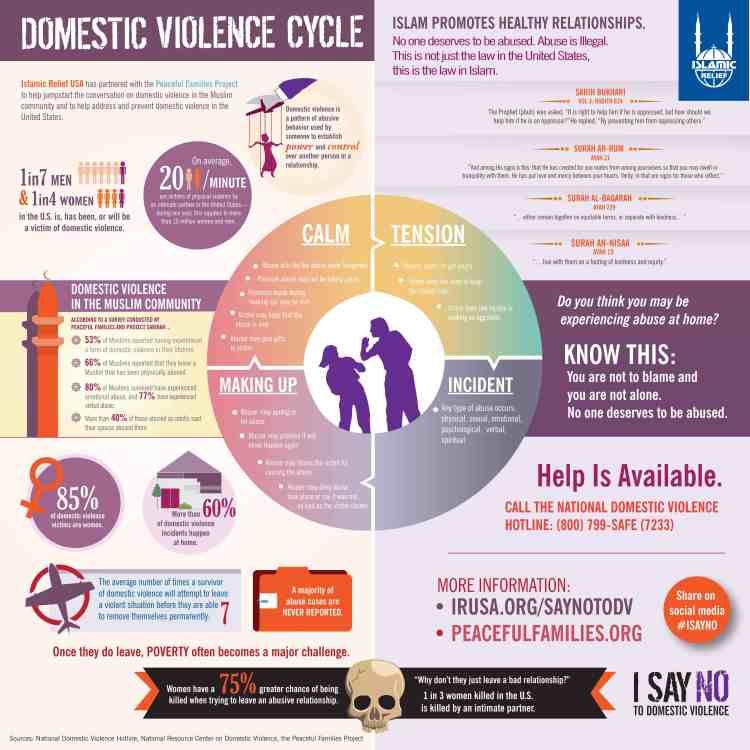
Very soon they are used as unpaid housekeepers and nannies by husband and children.
And for a while they even find pleasure in it, because they feel needed.
If we are in demand, they think, they will definitely not leave us. And being abandoned, lonely is one of the main fears of people with a victim complex.
Shadow theater
When a relationship deteriorates, they don't ask themselves what's wrong with them, but ask their partner what's wrong. They minimize their own needs to almost zero, always trying to please. Victimized people may simply not know what they want. They are waiting for someone else to do it for them.
If their partner is irritable and rude all the time, they justify it by being tired at work.
However, as practice shows, such self-sacrifice on the part of a husband or wife is not at all a guarantee of a lasting marriage. Just the opposite.
No matter how pleasant and convenient it is when someone does your work for you, one day you begin to understand that you have become addicted.
Image copyright, Getty Images
Caption before photo,There are people with a victim complex in many groups. They are ready to declare themselves a loser in advance
We don't like to be indebted, but here it turns out that the balance of contribution to the relationship is so upset not in your favor that it's easier to flee than to pay for unwritten obligations.
The situation with a dependent human partner is further complicated by the fact that he does not know how to build and protect his own boundaries. That is, the territory where only its interests, needs, preferences begin. What can be the boundaries? We are close people! I'm sure you've heard something similar many times.
But the problem is that, not having his own life, easily giving his all to you, your partner starts to live your life, your interests, and finally you.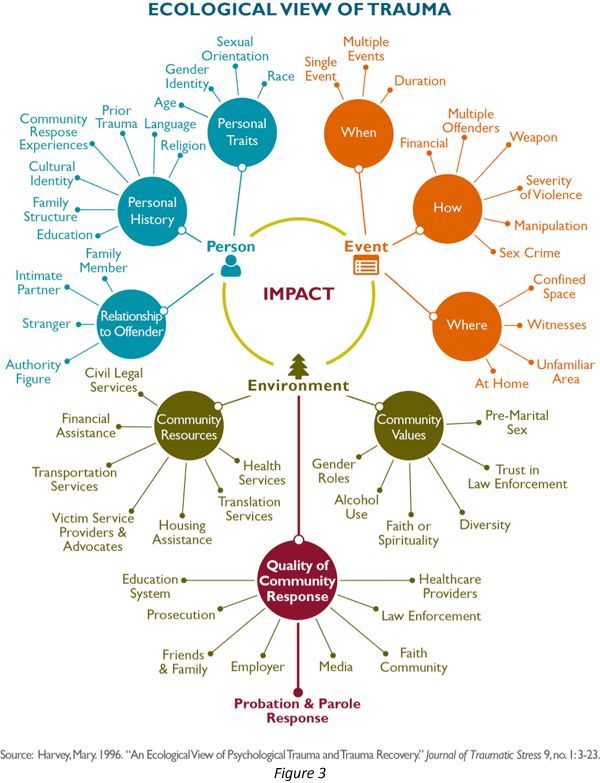
Who would like this? If only because it's just not interesting. After all, we want to see a self-sufficient person next to us, with his own inner world, and not his own shadow.
No matter what opinion you have about me, I don't think about you at all
And although sacrificial inclinations come from childhood, even an adult, having realized their presence, is quite capable of getting rid of them.
The main thing to do is to change the fulcrum in evaluating oneself and one's actions - from the external world to one's internal one.
To do this, you need to learn to respect yourself. What does respect mean? The clue is in the word itself. That is, find something in yourself that is important to you. And focus on this, build on this attitude towards ourselves. It could be anything.
For example, you have beautiful hair, a pleasant voice, you know how to make bright embroidery, you understand literature, history, you know and easily learn foreign languages.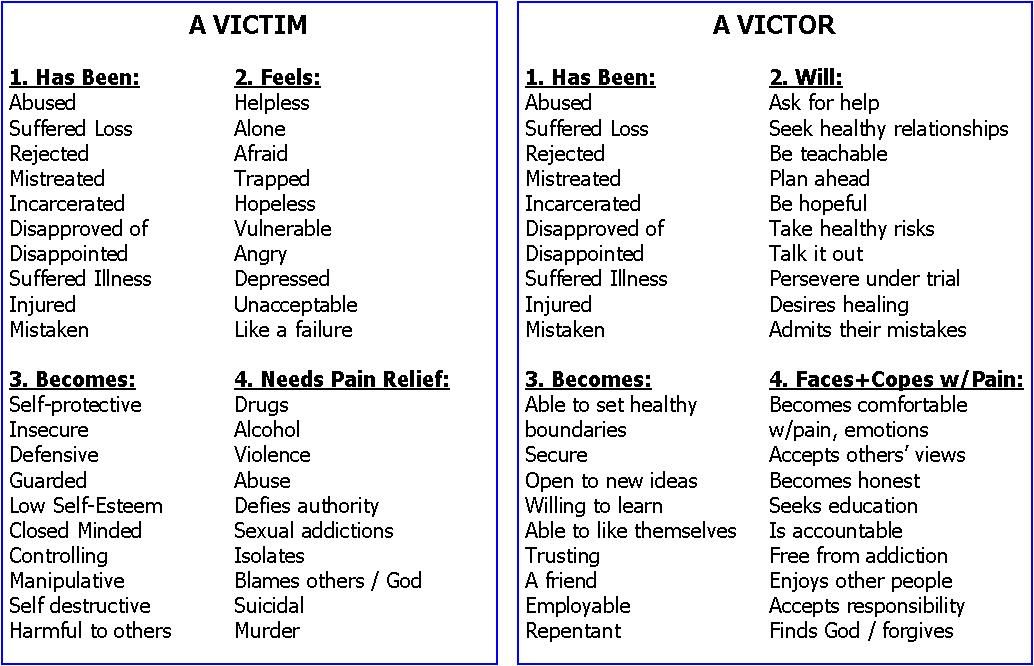 You know how to speak beautifully, draw, heal animals. And if you are also beautiful, smart and at the same time have beautiful and worthy parents, you generally have something to be proud of!
You know how to speak beautifully, draw, heal animals. And if you are also beautiful, smart and at the same time have beautiful and worthy parents, you generally have something to be proud of!
The main thing is not to rush out of habit to run to others to evaluate your qualities.
Focusing on yourself, you will thus gain immunity to impartial opinions about you from anyone, which used to be so unbearable.
For now it is important for you whether you will respect yourself. Therefore, someone's rejection of your views and actions for you will be only a fact that will not hurt you.
And also stop thinking that everyone wants the best for you, and if they love you, they won't hurt you. Unfortunately, things are different.
If someone has treated you like a pig, it does not always mean that he just made a mistake. Someone may want to hurt you. And you don’t have to feel, as you are used to, embarrassment for the offender and immediately forgive him.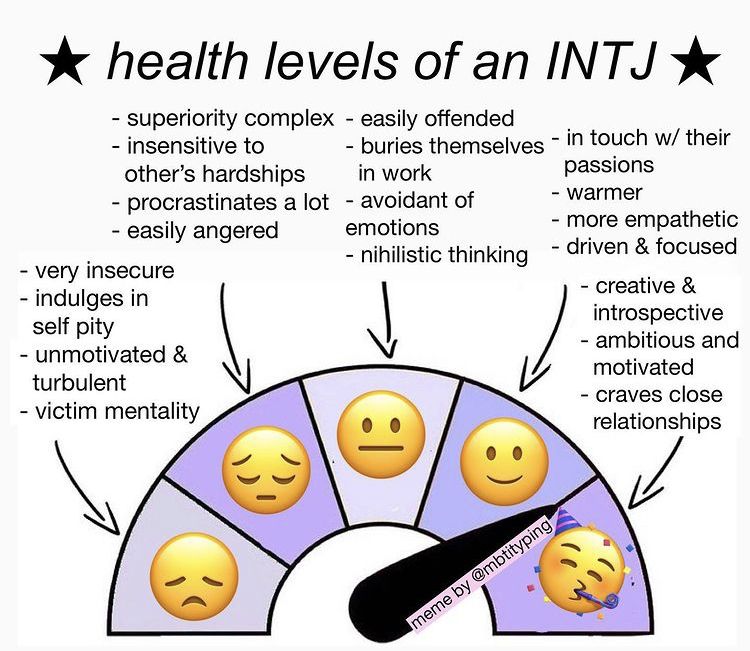
Instead, at least show indignation and say that you are not going to tolerate this in the future. And very soon they will begin to reckon with you.
How to stop being a victim: practical advice from a psychotherapist
July 13, 2017 Life
The position of the victim leads to the fact that a person ceases to play a decisive role in his own life. Psychotherapist Wayne Dyer, in his book How to Get Rid of the Victim Complex, tells what to do to behave like a free person today.
Wayne Dyer
Psychotherapist, author of the book "How to get rid of the victim complex" and 30 other works on self-development and personality psychology.
What it means to be a victim
These signs will help you understand that you are in the position of a victim.
1.
You are not in control of your own life The victim is forced to think, behave and even dress. The steering wheel is almost always in the wrong hands.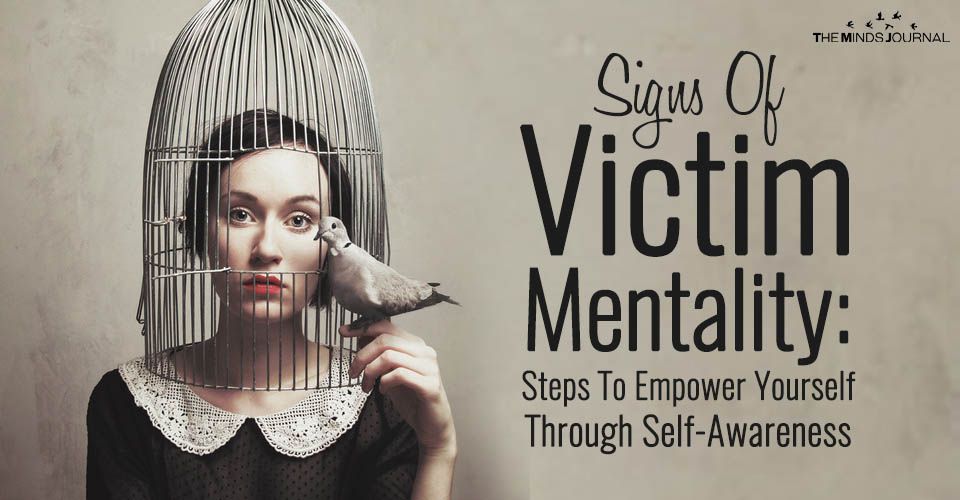
Victims are primarily those who spend their lives at the dictation of other people. They find themselves doing things they don't like at heart, or they get sucked into activities that are alien to them, bringing mostly only a feeling of regret.
"How to get rid of the victim complex"
2.
You act from a position of weakness.People with a victim complex often feel they are not smart or capable enough to be active. Therefore, they choose a position of weakness: they shift important decisions to other, stronger and firmer, in their opinion, people. Victims avoid independence even in small things: they give the right to choose a dish in a cafe or obediently go to a movie that they don’t want to watch.
3.
Life does not work for you If it seems that you spend all your time and energy to please others, forced to adapt and do what you don't like, out of a sense of duty - you are in the position of a victim.
4.
Anxiety and self-abasement are your companionsVictims suffer from an inferiority complex. They humiliate themselves in every possible way in the internal dialogue and in front of other people. This shows up even in small things. For example, a person does not accept compliments, keeps a burnt piece of cake for himself, or accepts a low salary.
Alternative behavior: a free and strong personality
The state opposite to the victim complex is the freedom of the individual.
Freedom means that no one prevents you from managing your own life in accordance with your choice. To settle for anything less is to choose one of the forms of slavery.
"How to get rid of the victim complex"
Do not buy into the tricks of people who suggest that freedom is selfishness and irresponsibility. Responsibility is the result of a choice, you take it on yourself voluntarily. In no case should it fall on you at someone's whim or under the pressure of society.
“The freest in the world are those who are at peace with themselves: they simply ignore other people's claims as they effectively arrange and direct their own lives,” Wayne Dyer writes in his book.
How to get out of the situation of the victim
Follow only two important recommendations.
1. Believe in your worth and defend it
The first step to overcome the victim complex is to realize the value of your personality. Don't let anyone challenge or diminish your worth. Never put yourself below others.
2. Start acting like a strong person
Cultivate the habits of free and independent people, get rid of self-judgment and complaints about life. Do not expect gifts from fortune, rely on your own strength.
Practice confident behavior in everyday situations
To become a strong person, you do not need to perform feats or control others. It is enough to act from a position of strength in ordinary life situations. Practice regularly, and over time, confident behavior will become second nature.
Here are some tips that you can put into practice every day.
1. Stop asking permission from others
Of course, this is not about forgetting about politeness and invading other people's borders. The bad habit of victims is that they ask permission for actions that are within their boundaries and must be done without someone else's permission.
Be direct about your legal requirements or be open about your intentions. Instead of asking "Can I exchange the product?" put the seller in front of the fact: "I want to return the money for the suit, it does not fit me." Do not ask your partner if you can go to a party or a football match. Communicate your plans directly, without excuses and guilty tone.
You are an adult and can act in your own interests without permission from others.
2. Demonstrate confidence in the conversation
Look the interlocutor in the eye, speak clearly, without long uncertain pauses and interjections, do not walk in circles.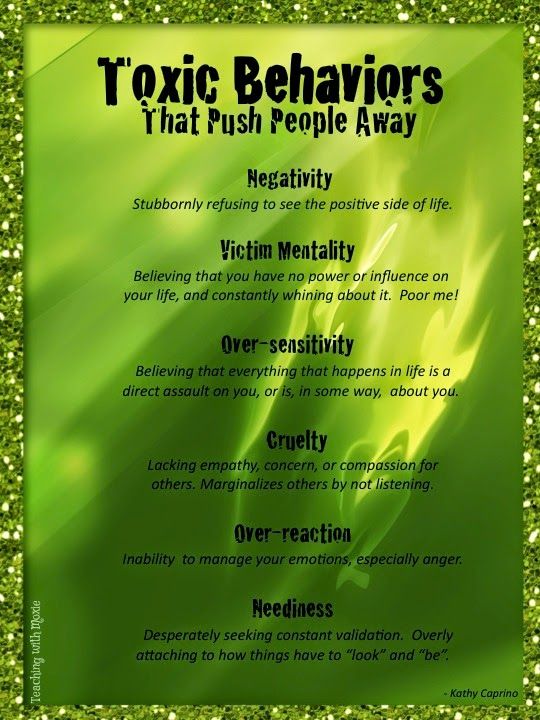 Posture and facial expressions are very important. Stand straight (stooping is a sign of an insecure person), do not grimace, get rid of nervous gestures.
Posture and facial expressions are very important. Stand straight (stooping is a sign of an insecure person), do not grimace, get rid of nervous gestures.
3. Don't help people if you don't want to
This may sound harsh. But how many times have you lent out when you didn't want to at all? Or how many times did they listen to their comrades complain about life simply because it was supposed to be? Rejection does not make you a bad and callous person. Remember: if you act like a victim while helping other people, you will be taken advantage of. Do good deeds out of a pure heart and free will, and not out of decency or guilt.
4. Don't be afraid to talk about yourself and share with other people
Victims often pick up every word and are afraid that any information will be used against them. Don't torment yourself with fears of this kind. Years of fear of showing your true nature in public leads to the fact that you forget who you really are and what you want.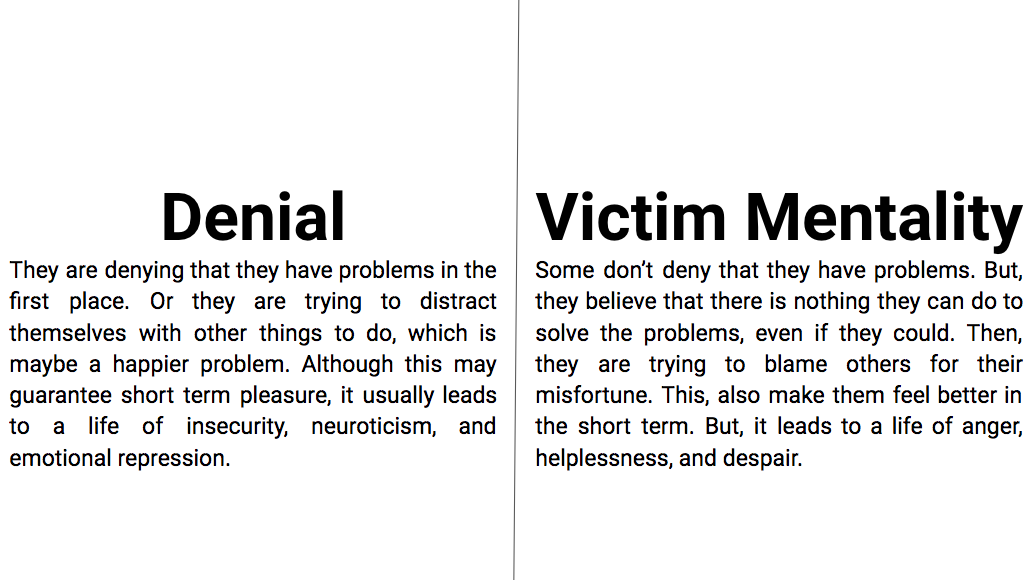
Communication is meaningless and empty if you do not open up to other people.
Of course, the information must correspond to the situation and the degree of trust between the interlocutors. Don't go to extremes. The ability to maintain balance is another sign of a strong personality.
5. Demand quality services for which you pay
Check store receipts, restaurant bills, expiration dates and product safety. If you are not satisfied with the quality of services, do not hesitate to request a replacement or compensation. Don't let the people you pay turn you into a victim. You should not brush aside and silently leave the store or restaurant - demand quality service, a replacement dish or a refund.
Learn and exercise your consumer rights. For your money, you have the right to get a good product or delicious food. This does not mean that you should argue and make scandals in any case. The client can always vote in rubles - simply refuse to pay for poor service or damaged goods.
